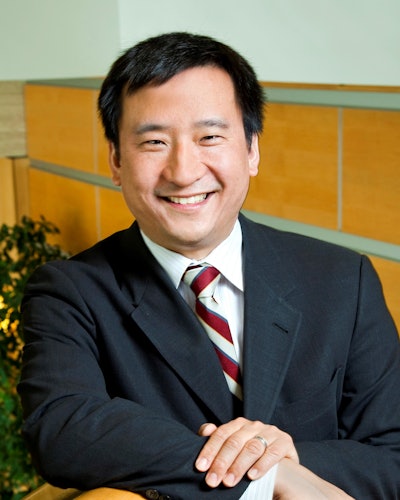Birthright citizenship unites people of color. The principle is under attack again. The two professors who wrote the book suggesting the Supreme Court was wrong to recognize the rule insist they are not motivated by race. In their latest essay on the same subject, they repudiate “animus.” Yet there can be no doubt that the original concerns about the ideal were all about race. The goal was to deny citizenship to African-Americans and the children of Asian immigrants.
The source of birthright citizenship is the Fourteenth Amendment to the Constitution. It states: “All persons born or naturalized in the United States, and subject to the jurisdiction thereof, are citizens of the United States and of the State wherein they reside.”
With its further guarantee of “equal protection of the laws,” the Fourteenth Amendment is one of three Reconstruction Amendments, enacted after the Civil War, to undo the Dred Scott v. Sandford decision which had rendered Blacks non-citizens. The point was to end chattel slavery. During debate on the proposal, legislators also were aware of the so-called “Chinese problem,” and opponents of the provision warned it would benefit Chinese as well.
 Frank Wu
Frank WuThe meaning of the text was established in the 1898 Supreme Court case Wong Kim Ark. Wong a restaurant worker born in San Francisco of parents from China, sought a declaration he was a citizen when he sought to re-enter his homeland after visiting his parents, who had returned to their homeland. At the time, the Chinese Exclusion Act was in full force. It prohibited Chinese from coming with limited exceptions, based on bigotry that was open as the very name of the legislation would indicate.
As Representative Henry Naphen declared, “In other cases, we admit the people and exclude the individual. In the Chinese case, we admit the individuals and exclude the people.” Even though Wong’s parents had come in a proper manner, they could never naturalize. They were barred on the basis of color. They were not “free White persons.”
The Chinese were treated as the hordes of Yellow Peril. They were deemed representative of China. The lines were racial, because Chinese in particular were distinguished from foreigners in general. Among the agitators against the Chinese were White foreigners such as Denis Kearney, of County Cork, Ireland.
Yet their child could enter if he was a citizen. The federal government opposed that with explicit prejudice. The Solicitor General, the Justice Department official who is supposed to represent the people, filed briefs with erudite citations to international law and venerable English common law. His main concern, however, also was set forth as clearly as he could express it. He stated: “There certainly should be some honor and dignity in American citizenship that would be sacred from the foul and corrupting taint of a debasing alienage. Are Chinese children born in the country to share with the descendants of the patriots of the American Revolution the exalted qualification of being eligible to the Presidency of the nation, conferred by the Constitution in recognition of the importance and dignity of citizenship by birth? If so, then verily there has been a most degenerate departure from the patriotic ideals of our forefathers; and surely in that case American citizenship is not worth having.”
If anybody wondered about his attitude, he elaborated in his reply brief that the “characteristics of the Chinaman . . . seemed to preclude him from actual citizenship here.” He requested the court take notice, based on its own earlier rulings, that Chinese were “apparently incapable of assimilating with our people.”
The language is telling. “Our people” referred to White Americans who did not doubt they belonged. The same briefs — during an era of de-cure racial segregation — referenced “Negroes” separately. Citizenship, in this conception, was lineal. Inferior status, like other stigma, would be passed from generation to generation.
The Justices rejected such bias. They held that Wong was a citizen, and, accordingly, he could enter — or more accurately, return. In doing so, they announced a universal ideal. They explained that the clause about “jurisdiction,” which is the only potential ambiguity, referred to a category that Wong’s parents were not: officials such as diplomats, “under the Emperor of China.”
Now, the public discussion about “chain migration” and “anchor babies” emphasizes Latina mothers crossing the border while pregnant for the sole purpose of obtaining legal residency for their progeny. The image is a sister to the “welfare queen” of as generation ago, the African-American single parent who had additional children for government benefits. Since California passed Proposition 187 in 1994, immigration has treated people without documentation as a category of disrespect. The fragile consensus that racial discrimination is wrong is circumvented by the notion this distinction is based on the citizenship instead, despite the circular reason that citizenship itself ought to be determined by race.
In theory, it may be possible to separate academic arguments from racial hatred. In practice, it might be impossible to do so.
Frank H. Wu is the William L. Prosser Distinguished Professor at the University of California Hastings College of the Law. You can follow him on Twitter @Frankwu





















